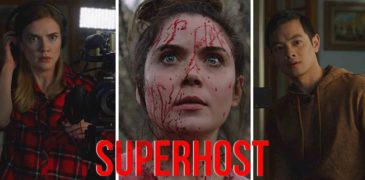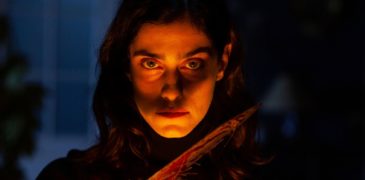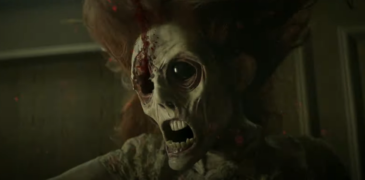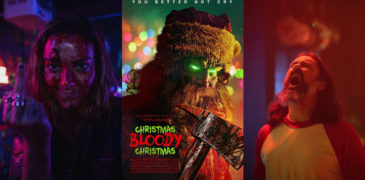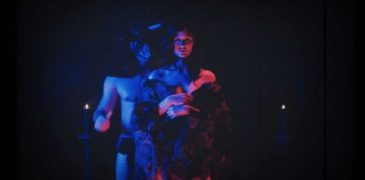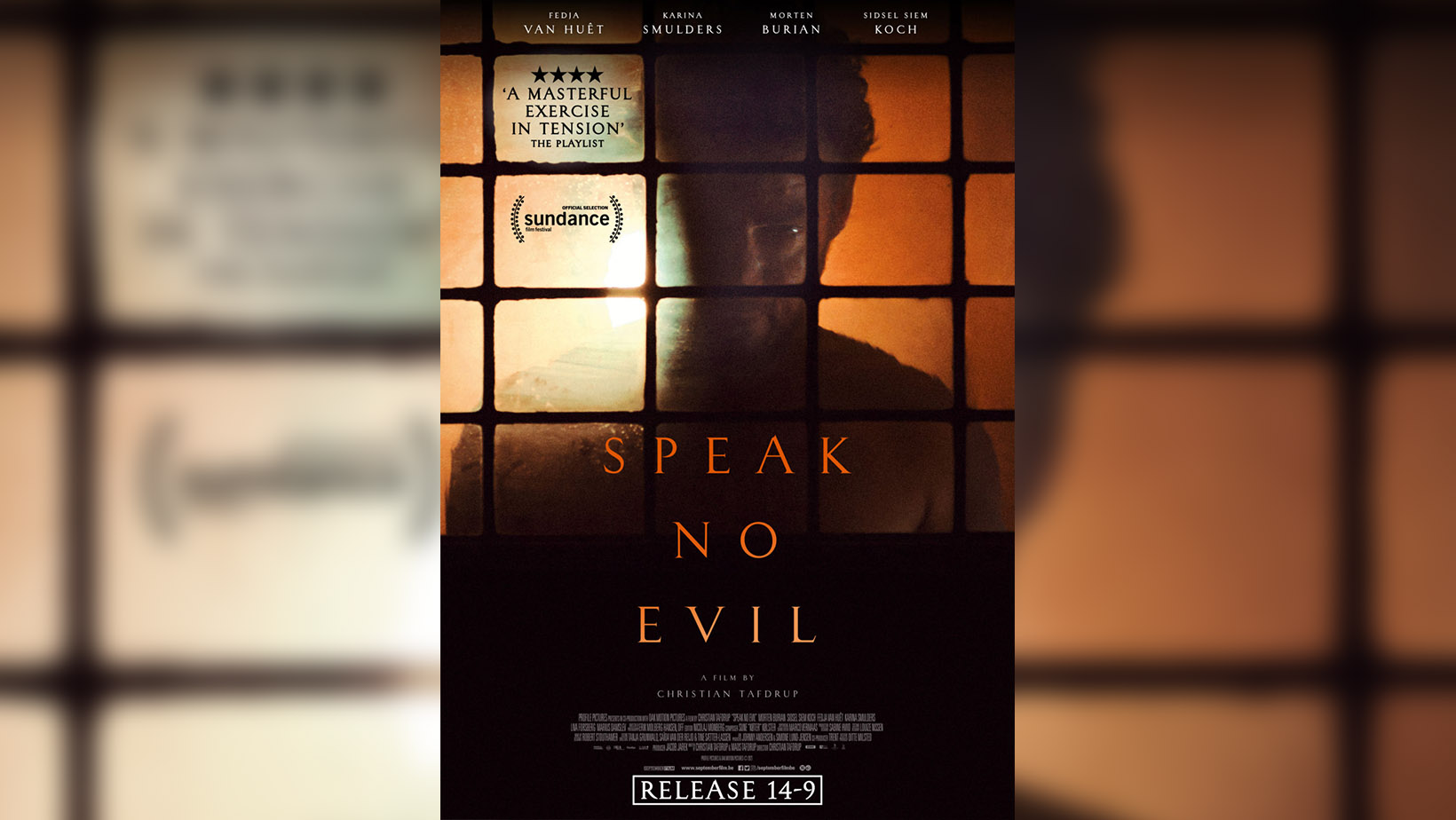
Following an Italian family vacation, Danish trio Bjorn (Morten Burian), Louise (Sidsel Siem Koch), and their young daughter take up an invitation to visit the Netherlands, at the behest of a Dutch family whom they met while abroad. Initially wary, questioning the awkwardness of visiting a family with whom they have only the briefest of holiday interactions, they take the opportunity for a weekend trip, trusting in the expectation of comforting middle-class hospitality which mirrors their own. Their Dutch counterparts Patrick and Karin, played by real-life couple Fedja Van Huey and Karina Smulders, along with their mute son Abel, welcome them to their isolated, woodland lodge and proceed to entertain them in their own inimitable fashion.
Knowing this is a horror, the audience cannot help but watch on high alert, sensitive to every red flag that warns of the trap the naive Danes are surely stumbling into; like the good, idiotic victims a film like this requires. The protagonists, however, are similarly hyper-aware and realistically sensitive to the awkwardness and unease apparent from the very start. Each of the oddities and social faux pars is not only noticed but challenged, only to be plausibly explained. Even when a line is crossed, that sees the family flee in the dead of night, it is not only brushed aside but used to highlight their own flawed parenting, reminiscent of another European horror, Antichrist, by enfant terrible Lars Von Trier.
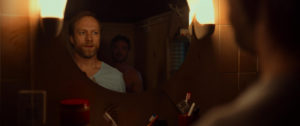
The film is beautifully shot with a depth of colour that contrasts warm interiors with the bleak expanses of Dutch skies and depthless, claustrophobic night, into which the film metaphorically ventures. The film is superbly acted with underplayed realism and focuses, during the first two-thirds, on the underlying threat that simmers beneath society’s politeness. The film’s limited score swells with orchestral dread over innocuous family life. Strings and horns unnerve while the family attends their daughter’s school play, enjoys a meal with friends, and travels together in the family car, reminding me of Robert Egger’s The VVitch (2015) or the ominous brass in Kubrick’s The Shining (1980).
As the weekend unfurls, the host family’s behaviour increasingly challenges their visitors, gradually pushing their boundaries, transgressing unspoken norms, and representing a way of life different from that which they had expected. The Dane’s sense of self, their parental roles, and vulnerable psychologies are all undermined, and their civilized weaknesses are played on so effectively that they are utterly disarmed, enabling the simple but barbaric conclusion in the film’s final third. The finale is truly brutal and will no doubt have some audience members cursing the character’s inaction, missing the analogous elements displayed by the biblical punishment that the couple seemingly come to accept as their due.
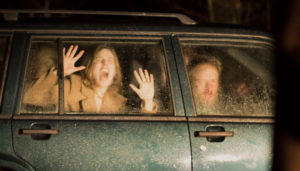
Director and co-writer, Christian Tafdrup, offers no jump scares and no cheap horror tropes. Exploring bleakness and the subversion of bourgeois expectations, Speak No Evil bares comparisons to Micheal Hanneke’s Funny Games (97/07), as well as to Dutch heartbreaker Spoorloos (1988), considering just what is capable when society’s niceties are manipulated, then cast aside, “because you let us”.
More From Shudder
Though the pandemic has seriously affected the way the world conducts business and we live our lives, filmmakers have been working to find a way to keep creating films in… Selected to cap off the closing night of Fright Fest 2021, The Advent Calendar has come to the attention of horror fans as one of the titles already announced as… Synopsis: An aged mortician meets a young girl interested in working for him, as the two go about the duties of the job he relates the tragic stories of the deceased…. Christmas Bloody Christmas is an over-the-top slay ride of holiday cheer fear! Writer and director Joe Begos (VFW, Bliss) always delivers a combination of good storytelling and delirious, gory violence… Creepshow has been a cult classic since its emergence in the 1980s as a beloved film featuring shorts that display a specific charm due to their campy nature and gory… Despite the belief that this humble viewer may have been drawn in by such a provocative title, Porno, (also cringingly known as Fangoria’s Porno) premise was enough to pique my interest….Superhost (2021) Film Review – Host-Mortem
The Advent Calendar Film Review – Eat Chocolate or Die!
The Mortuary Collection (2019) – Did That Guys Dick Just Explode?
Christmas Bloody Christmas (2022) Film Review – An Over the Top Slay Ride of Holiday Fear
Creepshow Season 1 (2019): Top 3 Episodes Ranked
Porno (2020) Review: Not Actually Porno…
